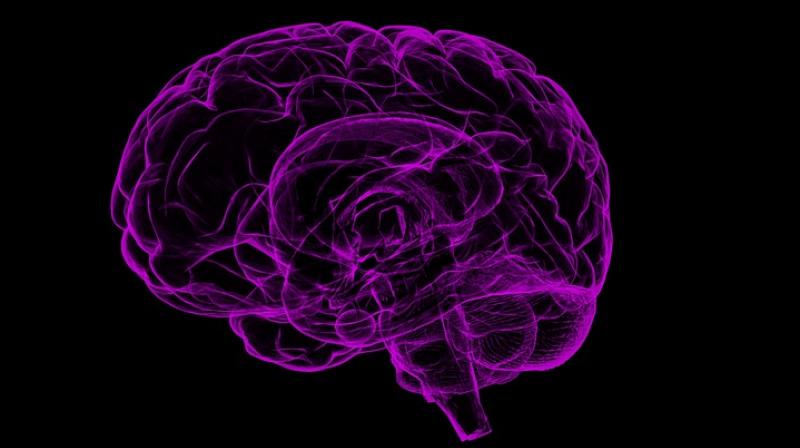Imbalance in pH levels may cause Alzheimer's disease: Study
Here is what a new study has found.

Washington: Imbalance in pH value may be a cause of Alzheimer's disease, a study has found.
A study conducted by Johns Hopkins Medicine scientists have found new evidence in lab-grown mouse brain cells, called astrocytes, that one root of Alzheimer's disease may be a simple imbalance in acid-alkaline-or pH-chemistry inside endosomes, the nutrient and chemical cargo shuttles in cells.
Astrocytes work to clear so-called amyloid beta proteins from the spaces between neurons, but decades of evidence has shown that if the clearing process goes awry, amyloid proteins pile up around neurons, leading to the characteristic amyloid plaques and nerve cell degeneration that are the hallmarks of memory-destroying Alzheimer's disease.
The experiment successfully reversed the pH problem and improved the capacity for amyloid beta clearance.
However, the scientists caution that even before any experiments can happen more research is needed to verify and explain the precise relationship between amyloid proteins and Alzheimer's disease.
The disease that affects 50 million people worldwide has no cure or no drugs, till date.
"By the time Alzheimer's disease is diagnosed, most of the neurological damage is done, and it's likely too late to reverse the disease's progression," said a lead researcher Rajini Rao.
"That's why we need to focus on the earliest pathological symptoms or markers of Alzheimer's disease, and we know that the biology and chemistry of endosomes is an important factor long before cognitive decline sets in," Rao added.
Nearly 20 years ago, scientists discovered that endosomes, circular compartments that ferry cargo within cells, are larger and far more abundant in brain cells of people destined to develop Alzheimer's disease.
It hinted at an underlying problem with endosomes that could lead to an accumulation of amyloid protein in spaces around neurons.
To shuttle their cargo endosomes use chaperones, which are proteins that bind to specific cargo and bring them back and forth from the cell's surface.
Embedded in the endosome membrane are proteins that shuttle charged hydrogen atoms, known as protons, in and out of it. The amount of protons inside the endosome determines its pH.
When fluids in the endosome become too acidic, the cargo is trapped within the endosome deep inside the cell. But when the endosome contents are more alkaline, the cargo lingers at the cell's surface for too long.
To help determine whether such pH imbalances occur in Alzheimer's disease, researchers scoured scientific studies of Alzheimer's disease looking for genes that were dialled down in diseased brains compared with normal ones.
Comparing a dataset of 15 brains of Alzheimer's disease patients with 12 normal ones, he found that 10 of the 100 most frequently down-regulated genes were related to the proton flow in the cell.
In another set of brain tissue samples from 96 people with Alzheimer's disease and 82 without it, gene expression of the proton shuttle in endosomes, known as NHE6, was approximately 50 percent lower in people with Alzheimer's disease compared with those with normal brains.
In cells grown from people with Alzheimer's disease and in mouse astrocytes engineered to carry a human Alzheimer's disease gene variant, the amount of NHE6 was about half the amount found in normal cells.
To measure the pH balance within endosomes without breaking open the astrocyte, researchers used pH-sensitive probes that are absorbed by endosomes and emit light based on pH levels.
They found that mouse cell lines containing the Alzheimer's disease gene variant had more acidic endosomes (average of 5.37 pH) than cell lines without the gene variant (average of 6.21 pH).
"Without properly functioning NHE6, endosomes become too acidic and linger inside astrocytes, avoiding their duties to clear amyloid beta proteins," said Rao.
While it's likely that changes in NHE6 happen over time in people who develop sporadic Alzheimer's disease, people who have inherited mutations in NHE6 develop what's known as Christianson syndrome in infancy and have rapid brain degeneration.
A protein called LRP1 was also found which picks up amyloid beta proteins outside the astrocyte and delivers them to endosomes. It was half as abundant on the surface of lab-grown mouse astrocytes engineered with a human gene variant called APOE4.
The study appears in the Proceedings of the National Academy of Sciences journal.

